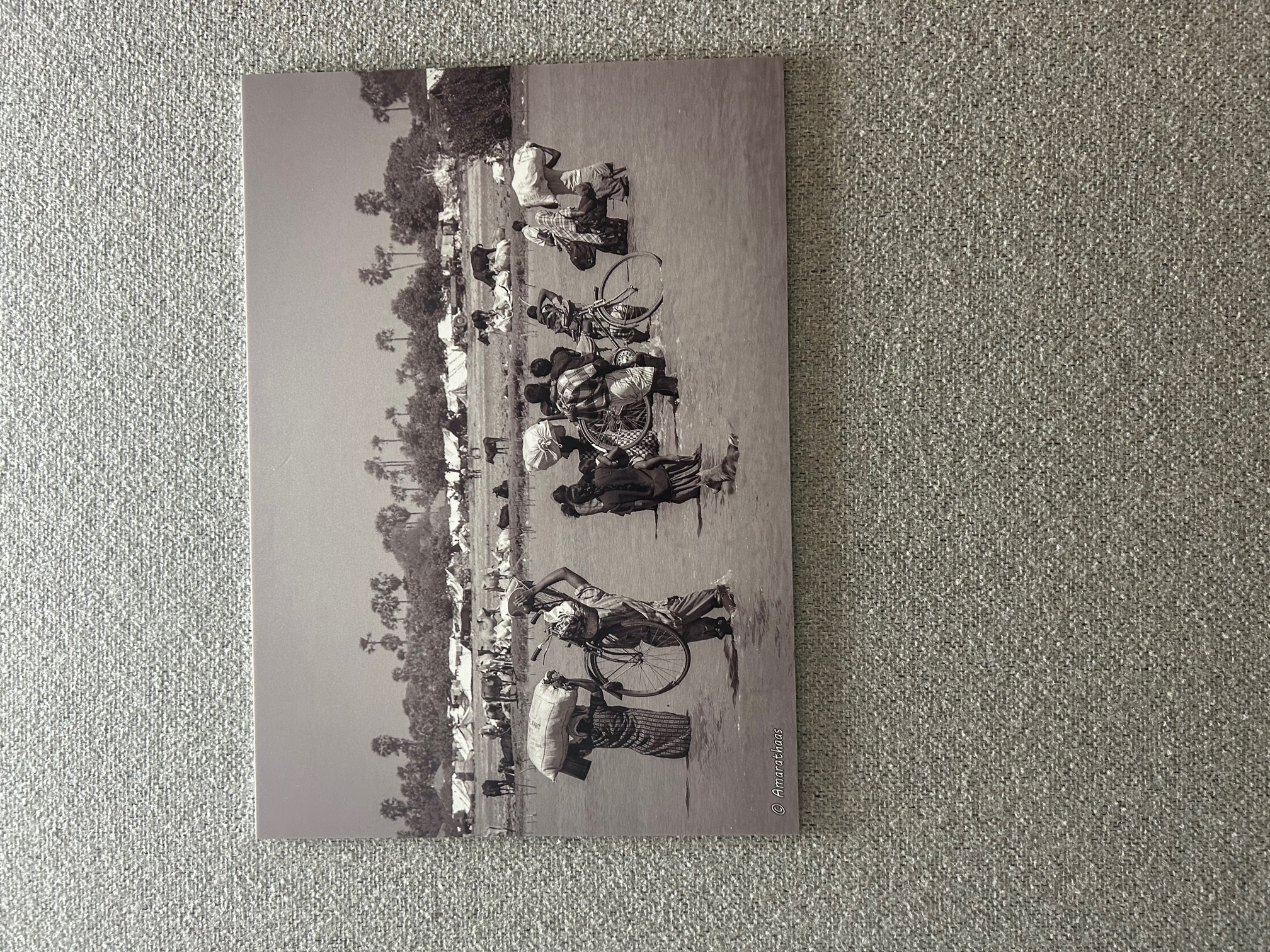
Trigger warning: Distressing images depicting violence and death are featured throughout the article.
An exhibition documenting the Mullivaikkal genocide and the global protests by the Tamil diaspora in 2009 is being held over the weekend in New Malden, London.
The exhibition, organised by Tamil Solidarity and it's youth wing, the Young Revolutionaries in Soldiarity, showcases a series of photographs taken in the final months of Sri Lanka's genocidal offensive in Mullivaikkal's No Fire Zones in 2009.

Many of the photographs featured in the exhibition were taken by Amarathaas, an independent journalist and artist, who had photographed the harrowing situation in No Fire Zones, where tens of thousands of Tamils were trapped and subjected to heavy shelling by Sri Lanka's armed forces.


The exhibition also displayed photographs from the protests that took place across the world. As Sri Lanka ramped up its hostilities against the Tamil population in the Vanni, the Tamil diaspora held mass demonstrations in capitals across the world to demand a ceasefire and for the international community to intervene to stop the massacre.

A new documentary by Kathai Ondru Sollata was also screened at the exhibition in which Tamil victim survivors recount their memories and the atrocities that took place in the final months of the armed conflict.

The exhibition included a timeline, based on a collaborative project launched in 2019, between the Adayaalam Centre for Policy Research, Tamil Guardian and 47 Roots, which detailed the final days of the massacre at Mullivaikkal.

Speaking to Tamil Guardian, Saarankan, a member of YRS said the exhibition is about "remembering the dead, fighting for the living and understanding what happened in 2009."
The 12th May to 18th May is widely known and commemorated as 'Tamil Genocide Remembrance Week'. The Tamil nation will be marking the week with events across the homeland and the diaspora.
